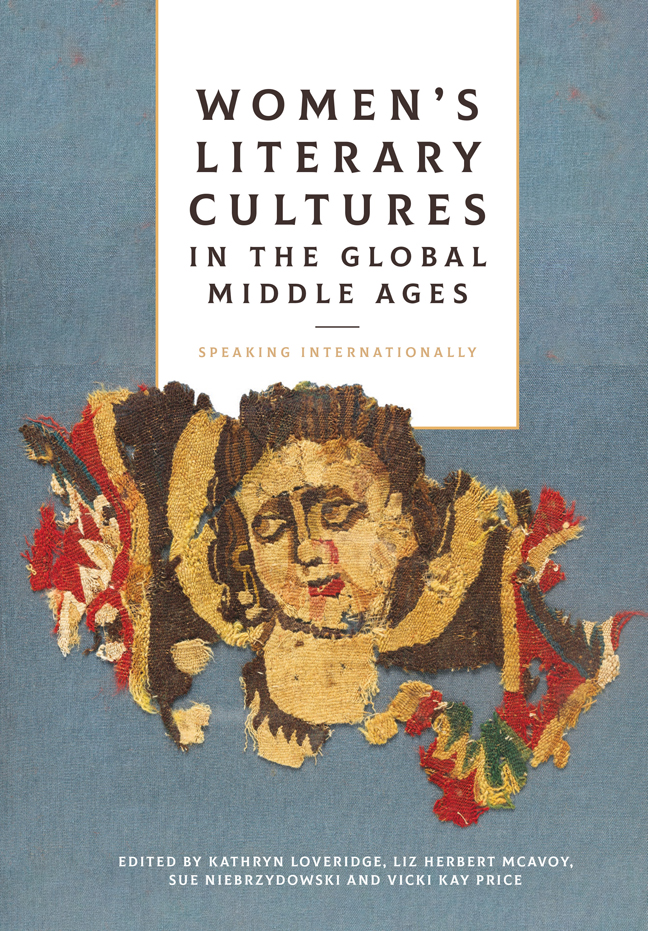Book contents
- Frontmatter
- Contents
- Foreword
- Acknowledgements
- List of Abbreviations
- Book part
- 1 Comparison and Dialogue
- 2 Constructing Gender and Genre
- 3 Saintly Performance and Marian Piety
- 4 Evidence and the Archives: Revisiting and Reconsidering
- Afterword: Intersectionality and Coalitions
- List of Contributors
- Bibliography
- Index
- Gender in the Middle Ages
5 - The Role of Kisaeng Sijo Poets in Medieval Korean Literature
Published online by Cambridge University Press: 09 January 2024
- Frontmatter
- Contents
- Foreword
- Acknowledgements
- List of Abbreviations
- Book part
- 1 Comparison and Dialogue
- 2 Constructing Gender and Genre
- 3 Saintly Performance and Marian Piety
- 4 Evidence and the Archives: Revisiting and Reconsidering
- Afterword: Intersectionality and Coalitions
- List of Contributors
- Bibliography
- Index
- Gender in the Middle Ages
Summary
In 1392, the Korean peninsula experienced an epochal event, the revolution that abruptly ended the Goryeo Dynasty (918–1392) and ushered in the Joseon Dynasty (1392–1897) in its stead, a dynasty that would endure to the dawn of pre-modern Korea. One feature of the fledgling dynasty was the rise of the Neo-Confucian literati who were aristocratic scholar-officials. Only these members of the elite ruling Yangban class had the opportunity to take on this role, subject to passing the examination that all prospective bureaucrats were obliged to sit. These men – for they were all men – dominated politics, serving in the royal court in Hanyang (modern-day Seoul) and sharing their expertise in classical Chinese literature, the possession of which was a prerequisite for a member of the Yangban to complete his education. Placing particular value on the arts, one of their preferred pastimes was entertaining themselves with sijo (lyrical three-line verse written in the vernacular) to express their Neo-Confucian philosophy and emotions.
Besides the Yangban, no other class of people was capable of contributing to this canon, with one notable exception: the Kisaeng. Kisaeng were women who provided companionship and entertainment (music and poetry) to Yangban. In this essay, we argue that the work of the Kisaeng poets has not been fully recognised; certain merits of their verse have gone unexamined in a way that would enable the reader to fully appreciate their contribution to literature. The problem stems from the tendency of modern scholars to frame their studies of Kisaeng sijo as they would the works of male-authored sijo. We contest this approach because it ignores the fact that in their sijo Kisaeng poets introduce criticism of their male admirers, presenting them as inferior and unworthy of respect to the extent that they display a lack of fidelity. This contrasts starkly with male-authored sijo in which the poet and the male admirer were identical and, while the male poet did not invariably refrain from adopting a critical voice towards the object of the male admirer's affection, he never did so when there was any danger of these words being misconstrued as referring to the king himself.
In juxtaposing female- and male-authored sijo and the contrasting political implications of their words it is important to bear in mind that causing offence to the reigning monarch could result in a person being exiled.
- Type
- Chapter
- Information
- Women's Literary Cultures in the Global Middle AgesSpeaking Internationally, pp. 103 - 122Publisher: Boydell & BrewerPrint publication year: 2023



